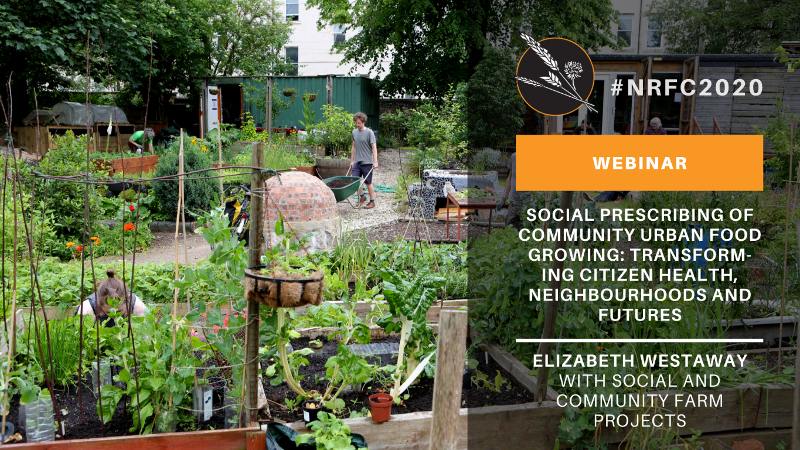A summary of the social prescribing session at the Northern Real Farming Conference 2020.
This session focused on the realities of social prescribing within urban agricultural sites. With a rise in interest in the concept, we are seeing more urban farms, community gardens and other urban productive spaces adopting the practice; enabling sites to generate more money, employ new members of staff and impact further on communities. This session featured academics, nurses, practitioners and site coordinators, each of which provided a different lens on how the practice is developing. The ‘red thread’ throughout focused on moving beyond the utopian idea of social prescribing and instead exploring the barriers and realities of pursuing the concept.
Summary of discussion points:
– Informal practice – speakers and discussants demonstrated that not all social prescribing is through a formal NHS route, but rather many sites are adopting the practice through informal paths instead.
– Funding – it was highlighted that, whilst social prescribing could generate more funding for urban food growing sites, the funding itself is not always appropriate. Often funders want new projects and are not interested in sustaining existing schemes. One speaker highlighted how it was much easier to get funding for a new garden (which is often more expensive) than it is to maintain an existing space. Funding often does not cover all the extra work and back room staff required for these complex projects.
– COVID – a strong theme emerged around how these spaces have gone ‘above and beyond’ during COVID, often acting as a lifeline for their communities. Sites have expanded and have acted as important assets in tackling food insecurity and mental health during the pandemic. One speaker argued that COVID ‘reinforced the health benefits of the site more’, again demonstrating its crucial role in the community.
– Evidence – speakers highlighted how it was crucial to evidence impact as part of the journey. One speaker showcased an array of tools which could be used, ranging from basic qualitative data collection to more complex health tools.
Actions, themes, ideas to take forward:
– Reflection paper – the team will put together a commentary paper to highlight the need for more policy support tools and funding in this area, whilst reflecting on the need for more support in general.
– Evidence base – a meta evidence base is needed on green care, perhaps administered by a national-level body. If made open access, this could be useful for groups to use. More work is needed with governing bodies in this area, such as DEFRA and public health departments, to raise awareness around the evidence base.
– Sites should sign up to the Social Farm & Garden Code of Practice – the Code of Practice – (https://www.farmgarden.org.uk/gcf/qa-Code) is designed to help care farmers or green care providers work through what they need step by step and provides an accreditation that farms/enterprises can use to demonstrate that they are delivering a quality person centred service.
– Collaboration – there needs to be more collaboration in the environment, with regional/local support networks and other tools being used. Too often, projects are competing with each other for funding; if the latter landscape is improved, this could lead to real change.
You can watch the recording of the session here.

